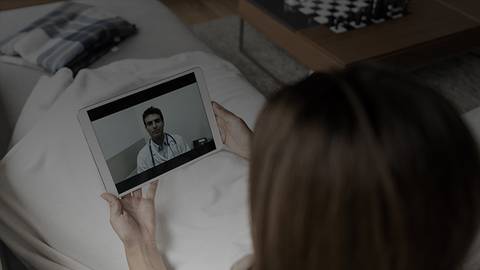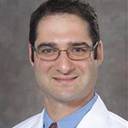Dr. Birnholz:
Coming to you from the ReachMD studios, this is COVID-19: On the Frontlines. I’m Dr. Matt Birnholz.
In the field of oncology, these, clearly, are unprecedented, challenging times for patients with cancer and the clinicians looking after them. But we had a chance to catch up with one oncologist to find out how he and his colleagues have adapted to maintain standards of care for their patients. Dr. Jonathan Riess, Associate Professor of Oncology and Hematology at the UC Davis Medical Center in Sacramento, CA, joined us from his office to share thoughts on modified practice strategies for patients with lung cancer in the setting of COVID-19. Here’s Dr. Reiss.
Dr. Riess:
Well, I think one of the ways that the practice is changing in terms of the COVID-19 pandemic is how best to provide excellent patient care while minimizing patient exposures to COVID-19. So one thing that we’re doing at U.C. Davis, that I think many other institutions are doing, is emphasizing video visits where it’s appropriate. Patients who are doing well who are on targeted therapies oftentimes don’t need to come in, you know, getting their scans and labs and appropriate monitoring studies done but then reviewing them with them in the convenience of their own home and checking in on them that way. So avoiding and minimizing all possible interactions with the healthcare system and trying to keep patients safe at home as much as possible while still delivering optimal treatment for their lung cancer.
I recommend reviewing with patients the things we can do to help minimize the interaction coming into the healthcare system to try to keep them safe at home as much as is feasibly possible while effectively treating their non-small cell lung cancer. And I think another thing is if symptoms develop, at U.C. Davis, we have, pretty good access to testing at this point. So to be able to test them if need be if symptoms are concerning, that could potentially be part of the symptomatology of COVID-19 to make sure that they get tested and adequately evaluated.
Dr. Birnholz:
That was Dr. Jonathan Reiss from the UC Davis Medical Center in Sacrqmento California.
For ReachMD, this is COVID-19: On the Frontlines. For continuing access to this and other episodes, and to add your perspectives toward the fight against this global pandemic, visit us at ReachMD.com and become Part of the Knowledge. Thank you for listening.



Facebook Comments